
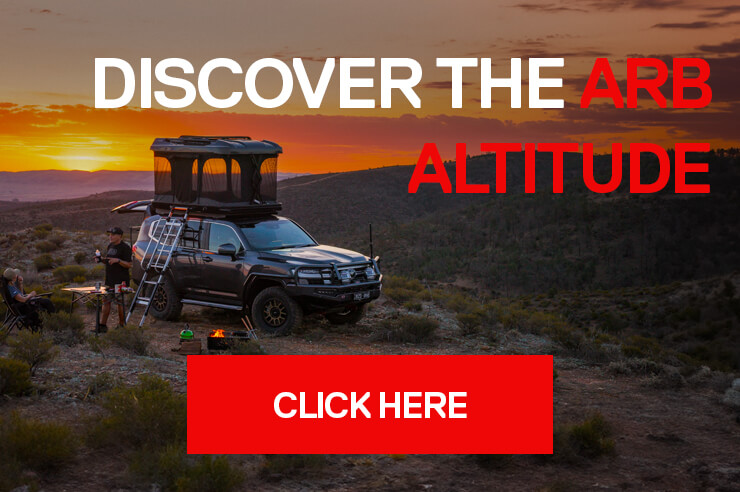


There’s no better feeling than escaping the 9 to 5 by hitting the tracks and experiencing the freedom of the great outdoors. While fresh air and a crackling fire are certainly appealing, it’s important to prepare with all your off-road essentials and safety equipment before you head off on your next trip.
From portable 4×4 fridge freezers to relaxing camping chairs, handy camp lighting solutions and more, we’ve got all your 4×4 camping accessories and touring accessories under one roof. Find your nearest ARB online and visit us in-store. We’ll get your rig ready for the great outdoors and ensure you have everything you need for your next off-road adventure.
Explore our range of 4×4 camping equipment online and head in-store today!
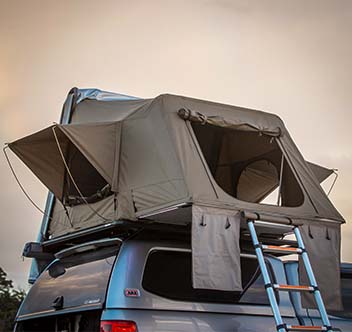
Explore our range of purposefully designed Rooftop Tents, to suit your sleep needs on the road
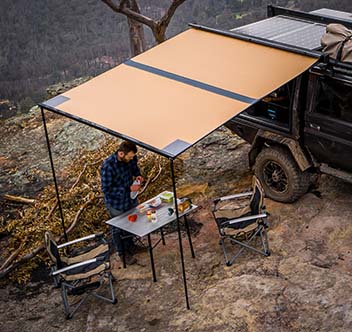
ARB has a range of different options available for our popular ARB Awning
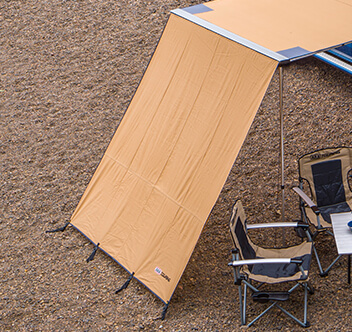
Unlock a world of possibilities for your ARB Awning, with helpful accessories to transform your off road essential
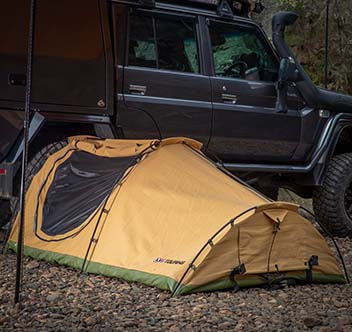
Experience the industry-leading ARB Single and Double Skydome Swag difference
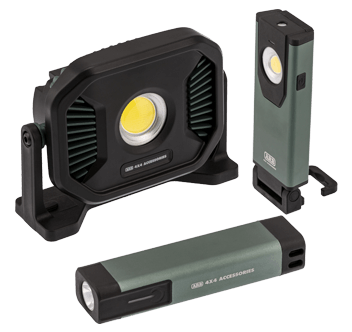
ARB’s range of Camp Lighting is perfect for compact, high output lighting
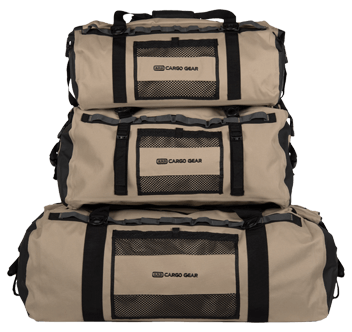
Having an array of purpose-designed bags to carry your gear is a must with ARB’s Cargo range
Packed with handy features as well as being easily collapsible, check out the range
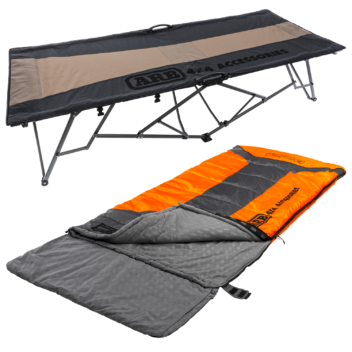
A good nights sleep has never been so easy – check out the options
Have your own private room on the campsite with ARB’s Ensuite Room
Easy to use pressurised water at the press of a button
Keep your essentials up high, and organised
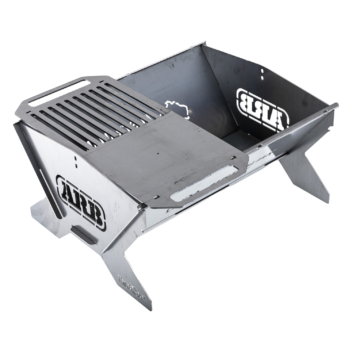
Keep yourself warm and let your cooking creativity flourish
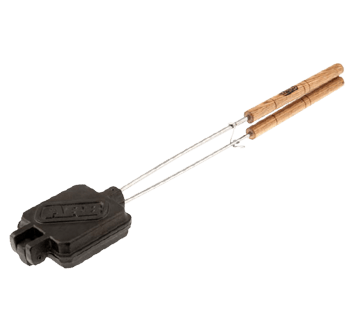
Make perfect toasties on the campsite, with a little ARB branding for extra quality assurance
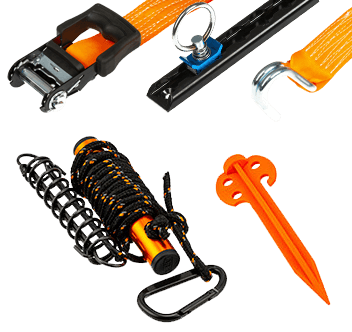
Keep your cargo safe at the campsite and on the move, with ARB’s range of fastening equipment
Hot water is a priceless commodity on the campsite that Bushranger have made a reality
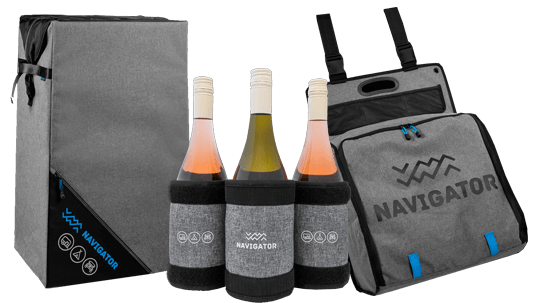
Navigator is an outdoor caravan, camping & adventure label that provides quality accessories and tools for the modern-day nomad.
Our range of Navigator gear is made up of practical items that enhance the caravanning experience both on and off-road.
Complete your offroad experience with our range of Navigator accessories. Explore the range online.
If you’re dreaming of an off-road adventure in Australia’s heartland or its northern reaches, timing is everything. Escape the scorching heat of the desert in summer by planning your trip during the cooler winter months. Remember, though, winter in the desert isn’t always a walk in the park — nights can be surprisingly brisk, so pack some cozy clothes and snug bedding.
The northern regions of Australia are typically best visited during the dry season, from May to October. The wet season can bring intense heat and heavy rains, making many roads inaccessible. Southern areas are at their best between October and April with comfortable temperatures in the low to mid 20s.
Got a list of must-visit spots? Whether it’s a formal bucket list or a collection of dream destinations, Australia’s vast landscape is brimming with wonders. The trick is to align your travel dates with the ideal season for each location. Get this right from the start, and you’re in for an unforgettable journey.
Australia’s weather can be as diverse as its landscapes. Picking the wrong season for a destination can turn a dream trip into a challenging ordeal. From relentless winds and varying sand hues to extreme heat or unexpected downpours, it’s crucial to be prepared.
Venturing off the beaten path? Your 4×4 will need some beefing up, starting with robust all-terrain tyres. Think about booking a comprehensive service a few weeks before your trip. This isn’t just about topping up fluids and filters – if your brakes or tyres are nearing their end, replace them to avoid trouble on the road.
Remember, this journey will add significant mileage to your vehicle, some of which will be over rough terrain. Your 4×4 is the backbone of your trip, so it’s crucial to ensure it’s in peak condition.
A great way to test your off-road skills and camping setup is to start with a short bush camping trip close to home. This trial run will help gauge your family’s readiness for longer, more remote adventures. Plus, it’s a chance to figure out what level of “roughing it” everyone is comfortable with. If the consensus leans more towards luxury than the great outdoors, you might need to rethink that deep outback expedition.
Effective trip planning includes a clear idea of your driving distance, overnight stops, and refuelling points. When travelling through the Outback, keep a close eye on your fuel gauge and have a backup plan for refuelling. Factors like headwinds can increase fuel consumption, so be prepared for unexpected changes.
Don’t gamble with fuel when passing through towns – it’s better to refuel than risk running dry before reaching your next stop.
Off-road adventures can sometimes lead to sticky situations, so carrying a well-equipped Recovery Kit is crucial. Always carry the following items to stay prepared when heading off-road.
No matter how careful you are, always expect to get bogged on an off-road 4WD adventure – it’s part of the fun!
What’s not fun is getting bogged down without the right equipment to get you out. The terrain might seem easy at first glance, but conditions can change rapidly, making even the most benign-looking track challenging. Stay prepared and get out quickly and efficiently with the following essential items:
Recovery boards provide a grippy surface for your wheels, helping your vehicle gain traction and move forward. Carrying at least two large recovery boards is recommend, though having four is not excessive if you have the storage space. These boards can also double as a stable platform for a jack or even as a makeshift shovel.
A small folding shovel is another crucial item in your recovery kit. It’s useful for digging out sand under a stuck vehicle and for placing recovery tracks. A snatch strap and shackles, while requiring another vehicle for effective use, are also invaluable. They work by stretching and contracting to pull the stuck vehicle out. However, it’s crucial to ensure these are correctly rated for your vehicle’s weight and to learn how to use them safely, as improper use can be dangerous.
Other items to consider include an exhaust jack, which is useful for lifting your 4WD off obstacles, and tools for adjusting tyre pressures. A tyre plug kit and a 12-volt air compressor are also handy for dealing with punctures in remote areas.
Remember, while having the right equipment is vital, knowing how to use it safely and effectively is equally important. Consider taking a practical 4WD course that includes vehicle recovery training to ensure you’re fully prepared for your off-road adventures.
Finding the perfect tyre pressure for off-roading is a balancing act. It varies depending on your vehicle’s load, tyre type, and the terrain. You’ll know you’ve hit the sweet spot when your vehicle handles well as you steer, accelerate, and brake. Remember to adjust your tyre pressure for off-road conditions based on recommendations found in your vehicle’s handbook, the driver’s door sticker, or the tyre sidewall.
Rooftop tents come in two primary types: hard shell and soft shell. Hard shell tents like the Esperance RTT are more durable, aerodynamic, and offer better protection against dust and water. They are generally easier to set up and pack down, often featuring power-operated mechanisms, integrated lighting, and sometimes even solar panels. The hard shell design provides more headroom and can be stronger in high winds.
Soft shell rooftop tents like the Flinders RTT are usually more affordable and offer more bed space, making them a better option for families or groups. These tents unfold to double their footprint, providing ample sleeping area. They also create a protected space underneath, which can be useful for sitting out of the elements or cooking. Many soft shell tents come with additional zip-on walls and awnings for extra space and privacy.
When choosing a rooftop tent, consider the weight and how it will affect your vehicle’s driving dynamics, especially off-road. Ensure the tent does not exceed your vehicle’s maximum roof load. Also, consider the ease of access – the ladder design and the height of your vehicle can impact how easy it is to enter and exit the tent.
The quality of materials is crucial. Look for durable canvas, double-stitched waterproof seams, and UV-stability in the materials. The mattress quality, window design for ventilation, and insect screening are also important for comfort.
When it comes to first aid kits for off-road adventures, it’s better to over-prepare than under-prepare. You can start with a basic kit and add items as needed. Essentials include:
Subscribe to ARB to receive your regular 4x4 CULTURE magazine, exclusive ARB promotional news and new product release information.